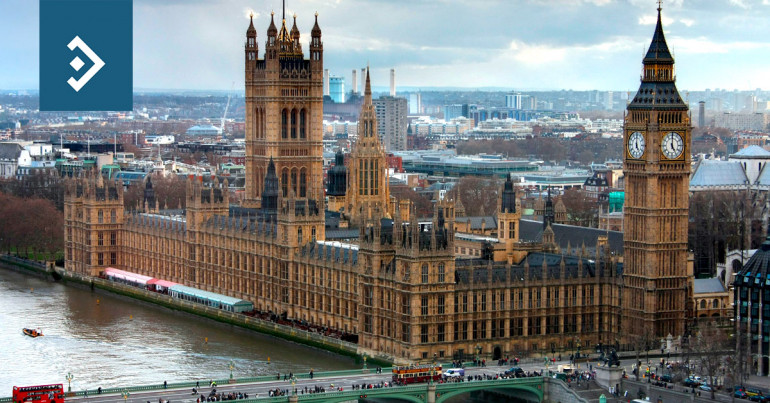
No Looking back
Morning mid-market rates – The majors
5th July: Highlights
- Everyone agrees, it’s not the fault of Brexit
- Does Powell really believe only unemployment rise can cure inflation?
- Investor confidence collapses as recession beckons
GBP – The UK must accept Brexit and build a new economy
The leader of the opposition, Sir Keir Starmer, spoke of the need for the UK to move on from the arguments of the past, that the country would remain outside the single market, customs union and the free movement rules.
Starmer received stinging criticism from members of his own Party, who favour an attempt by any future Labour Government to rejoin.
While there is little doubt that Brexit has contributed to the current economic slowdown, it is not the dominant feature. The inability of supply to keep up with demand comes from further afield than Brussels.
Jacob Rees-Mogg, the Brexit Opportunities Minister, spoke on radio yesterday of the missed opportunities for the country to benefit from its departure from the European Union. It is obvious that dealing with the Pandemic had to receive top priority as the Government dealt with the effect of Covid-19.
The Government has been plunged into crisis again as Boris Johnson performed yet another U-turn in first denying and then agreeing that he was aware of accusations against his Deputy Chief Whip, who was forced to resign last week.
The level of mistrust that has seen Johnson’s approval rating plummet has reignited the plot to oust him from office. The feeling amongst several Cabinet ministers is that they cannot continue to protect a Prime Minister who is becoming a liability and has fallen from being a positive influence on his Party’s electoral performance.
The debate over how much the Bank of England needs to hike interest rates at its next meeting rages on. Data will be released today which will show how services output has fared recently.
It is expected that the S&P global services PMI will remain unchanged at 53.4, despite the economy slowing when other measures are used. While there is a degree of stagnation, the 50 level which indicates contraction or expansion hasn’t been breached.
The market began the week slowly with the U.S. Independence Day Holiday taking place.
The Pound managed to climb very slightly to 1.2165, but couldn’t muster the momentum to challenge resistance at 1.2180 and drifted back to close at 1.2117.
Recommend our services and earn up to £75 per successful referral
USD – Can the U.S. buck the trend
To quote the Wall Street Journal, everyone loves the Fed when borrowing costs are zero, but as interest rates rise and inflation soars, the love evaporates very quickly.
Powell remains committed to the fact that the fight against inflation is unconditional and is a factor that needs to be dealt with now, since it is something that cannot be ignored.
Last summer, as inflation began to concern economists as the Fed remained committed to supporting the economy as the country battled Covid-19. It was forced to change this view as supply chains became challenged, and demand began to radically exceed supply, pushing prices ever higher.
The effect of the conflict in Ukraine has had a secondary effect on the U.S.as it has ample supplies of basic foodstuffs, but the rise in the oil price stares every American in the face every day.
Powell told Congress in no uncertain terms in his testimony last week, that he and his colleagues have no magic wand with which to bring inflation down, but is attempting to control it using conventional tools to dampen demand.
In several developed nations, the rises that are being seen in interest rates are slowing their economies to such an extent that recession remains a real threat but in almost every case, drivers are being seen that are unique to them.
The FOMC expects the U.S. economy to avoid a recession since it doesn’t intend for the medicine that will kill the patient, although the dangers still exist.
Despite the holiday in the U.S. yesterday, speculation is growing regarding this week’s release of the June Employment Report. There have been suggestions from politicians that Powell would welcome a higher rate of unemployment, since that would be a sure-fire measure with which to kill inflation and dampen demand.
Powell denies this, but, nonetheless, the Fed would be too worried if the predictions for a fall in the headline NFP were proven to be true.
Yesterday, the dollar index was fairly becalmed. It traded between 105.25 and 104.81, closing at 105.17.
EUR – Nagel, not about to be soft on indebted nations
Nagel spoke of his concerns over the tools that the Central Bank plans to introduce to ensure that the fragmentation that is blighting bond markets is short-lived.
He is concerned about introducing a tool to level up individual nation’s borrowing costs artificially. This goes against the German Government’s efforts to maintain financial discipline in what have been and continue to be difficult times.
While Nagel has appeared to be a more diplomatic voice than his predecessor Jens Weidmann who abruptly announced his departure at the end of last year, His commitment to making sure that Germany doesn’t begin to be bled dry is serious. This takes the pressure that is building around the next ECB meeting just that bit higher.
Nagel will be supported by several Northern European Nations in his efforts to ensure that the protection of the indebted nations’ economies doesn’t come at a cost that could quickly become unbearable.
If the ECB is to ensure that the borrowing costs, the market charges, to the nations who use it to finance their borrowings the price for that has to fall somewhere, and while Germany remains committed to the Union, it believes that not only should the burden be shared equally but the measures that are adopted are successful.
The current level of inflation across the Eurozone means different things to different members of the Union.8.6% is unacceptable to most nations, except perhaps certain members of the former Soviet bloc.
Above 2% is unacceptable to Germany, while the current rate in Italy of 4.6% is relatively comfortable.
Interest rates are going to rise this month, that much has already been confirmed by Christine Lagarde, but even at fifty basis points, it may not have any effect and the ECB will only be embarking on a painful journey as recession begins to bite.
The euro fell to a low of 1.0417 yesterday and closed at 1.0421 as the market sees recession and probably stagflation as major concerns.

About Alan Hill
Alan has been involved in the FX market for more than 25 years and brings a wealth of experience to his content. His knowledge has been gained while trading through some of the most volatile periods of recent history. His commentary relies on an understanding of past events and how they will affect future market performance.”



